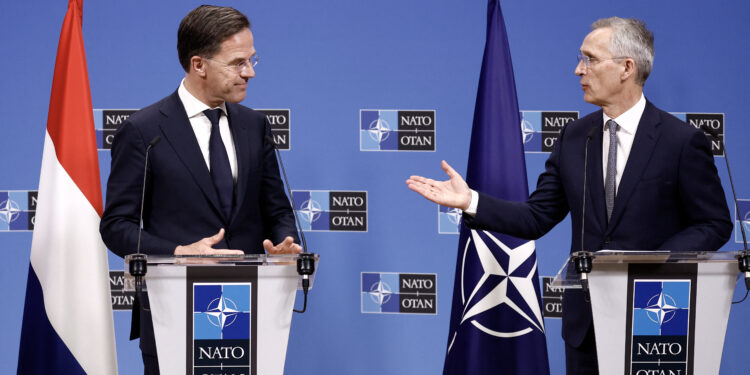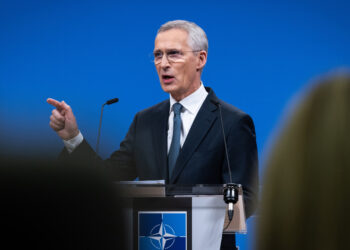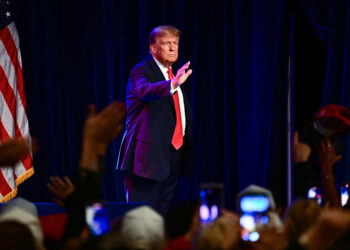Brussels – The plots woven over the past six months or more by the outgoing prime minister of the Netherlands, Mark Rutte, have withstood the test of the risk of a Central and Eastern European break-up, and as of today (June 20) it can be said with almost absolute certainty that the Dutch politician will succeed Norway’s Jens Stoltenberg as the next NATO secretary general. There is no officialdom yet because of a question of how the internal rules of the North Atlantic Treaty Organization work, but the announcement by the president of Romania, Klaus Iohannis, on the definitive withdrawal from the race puts Rutte in a virtually ironclad position ahead of the Washington Summit (scheduled for July 9–11), before he officially takes office next October 2.
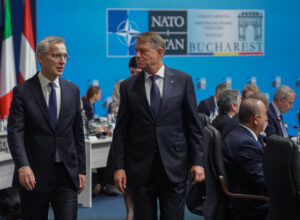
Iohannis was the last of the 32 Atlantic Alliance leaders who had not yet given his consent to the nomination of the outgoing Dutch premier, as he is also a candidate for secretary general. “The president asked the members of the Supreme Defense Council to pronounce themselves on the candidacy of Mark Rutte for the post of NATO secretary general,” reads a note from the country’s presidency (which is also an EU member), announcing that the same members “declared themselves in favour of Romania’s support for the candidacy of the Dutch Prime Minister.” The selection of the figure of the Alliance’s secretary-general takes place through informal diplomatic consultations among the member countries, which propose candidates for the post (traditionally a senior European political figure): there is no actual vote, but the decision is not confirmed until a consensus is reached on a candidate.
The decisive moment for the Dutch Premier’s candidacy for Atlantic Alliance secretary general, however, occurred on Tuesday (June 18), when Hungarian Prime Minister Viktor Orbán announced an agreement with outgoing Secretary General Stoltenberg to unblock Rutte’s nomination. “We have agreed that no Hungarian staff members will take part in NATO activities in Ukraine and no Hungarian funds will be used to support them,” is what was written in a post on X by the Budapest strongman, who pointed out how the successor “confirmed his full support for this agreement and will continue to do so” even in his new capacity as head of the Atlantic Alliance and “also assured me that his goal will be to treat all allies with the same level of understanding and respect.” Rutte’s letter to Orbán (attached to the post) emphasizes, however, that “Hungary will not oppose” efforts to support Ukraine, “allowing other allies to move forward.” Parallel to the breakdown of the standoff in Budapest, the reservation was also lifted by the president of Slovakia, Peter Pellegrini, who clarified how his country will support the Dutch premier, albeit in exchange for greater support in defending national airspace. Iohannis thus found himself abandoned even by the last two leaders who might have supported an East-Central European candidacy.
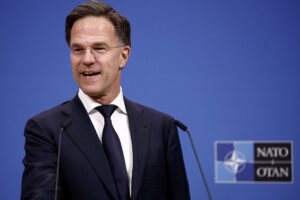
Early indications that Rutte was the favourite in the race for NATO secretary had emerged from an editorial of the Atlantic Alliance’s former spokesperson (until September 2023), Oana Lungescu: “Forging consensus among NATO’s 31 allies is the Secretary General’s main
job. Rutte, sometimes called ‘Teflon Mark’ for his ability to lead
diverse coalitions and survive political scandals, is a pragmatic
dealmaker and a master of consensus in both NATO and the EU.” In this sense, the Dutch premier has forged ties not only with Stoltenberg but also with other Alliance leaders, from Albania to Lithuania, from Poland to the United States. The issue of ties with Washington is another point in favour of Rutte, who has developed a very good relationship with President Joe Biden and, at the same time, is also one of the few European leaders to have tried to maintain a stable one with his predecessor Trump, who may return to the White House after the November elections. The Dutch prime minister also managed to close the one weak point in his candidacy, namely the Netherlands’ alignment with the minimum defence spending threshold of 2 per cent relative to GDP: in a report published by Nato Monday night (June 17), it emerges that The Hague has reached 2.05 in 2024.
